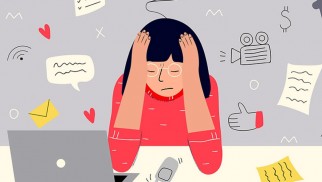Understanding Attention Deficit Hyperactivity Disorder (ADHD)


What is ADHD, and Why Does It Matter?
Have you ever wondered why some people struggle with staying focused, are constantly restless, or have difficulty controlling impulsive behavior? These could be signs of Attention Deficit Hyperactivity Disorder (ADHD), a neurodevelopmental disorder that affects both children and adults. Recognizing and addressing this issue is vital because untreated ADHD can significantly impact academic performance, work efficiency, and personal relationships.
ADHD isn’t just about being distracted or fidgety; it’s a complex condition that manifests differently in individuals, often affecting their quality of life in profound ways.
Symptoms of ADHD
ADHD typically presents itself through the following core symptoms:
- Inattention:Difficulty focusing, frequent mistakes, forgetfulness, and lack of organizational skills.
- Hyperactivity: Excessive movement, inability to stay still, and difficulty in quiet tasks.
- Impulsivity: Hasty actions without forethought, interrupting conversations, and inability to wait for turns.
These symptoms vary in severity, making it crucial to identify specific challenges early for effective management.
Causes and Risk Factors
ADHD doesn’t have a single, clear-cut cause. However, the following factors are associated with the condition:
- Genetics: A family history of ADHD increases the likelihood.
- Brain Function and Structure: Differences in brain regions related to attention and impulse control.
- Prenatal Factors: Exposure to drugs, alcohol, or tobacco during pregnancy.
- Environment: Early childhood adversity or exposure to toxins, such as lead.
How ADHD Impacts Daily Life
Living with ADHD can be challenging:
- Struggling to complete tasks at work or school.
- Difficulty maintaining relationships due to impulsive or inattentive behavior.
- Feelings of frustration, low self-esteem, or anxiety stemming from unmet goals or social difficulties.
Treatment Options for ADHD
Managing ADHD is a multidimensional process that often combines medication, therapy, and lifestyle adjustments:
- Behavioral Therapy: Helps develop coping strategies for managing symptoms.
- Educational Support: Tailored interventions in school or workplace settings.
- Lifestyle Changes: Establishing routines, mindfulness practices, and regular exercise.
One prominent treatment option is Strattera(Atomoxetine), a non-stimulant medication approved for managing ADHD. Unlike stimulant medications, Strattera works by increasing norepinephrine levels in the brain, which can help improve focus and control impulsivity. It’s especially beneficial for individuals who cannot tolerate stimulant medications or have a history of substance misuse.
Addressing ADHD with the right strategies and support can empower individuals to live fulfilling and productive lives. By seeking professional help and exploring available treatments like Strattera, those affected by ADHD can achieve significant improvements in managing their symptoms and enhancing their quality of life.
Article post: Editorial Team of RXShop.md
(Updated at Jan 4 / 2025)

